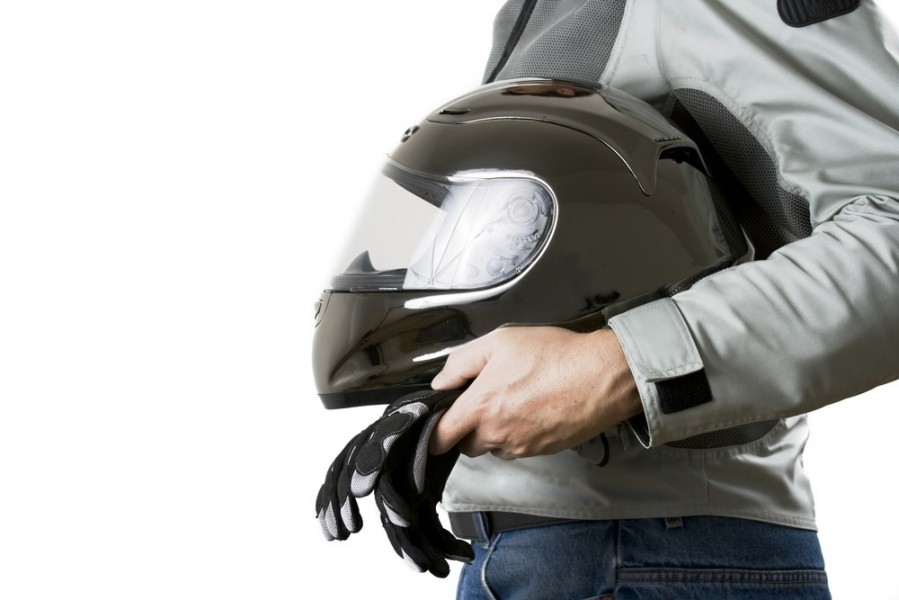Are Motorcycle Helmet Laws Fair?

Riding a motorcycle is more than a hobby for some. Whether it’s for adventure, ease of parking or fuel efficiency, many are passionate about this two-wheeled lifestyle here in Vancouver, WA and all over the nation.
When you want to gear up for a ride, all of us at Dick Hannah Vancouver Collision Center want to let you know that you should always wear proper footwear, as well as pants, a jacket and gloves, and of course a helmet. Most agree that it’s the best protective gear you can wear while riding.
It doesn’t matter if you live in Indiana, Alabama or Rhode Island, you’ll want to have a clear understanding of the helmet laws in your state. The laws vary across the country and many changes have occurred over the last 50 years. As of June 2017, there are 19 states and the District of Columbia that require all motorcycle riders to wear a helmet. This is referred to as “universal helmet laws.” In 28 states, there are laws that require some riders to wear one. If you happen to live in Illinois, Iowa or New Hampshire, there is no law that makes it a requirement.
 At one time, pressure from the federal government resulted in more states instituting universal helmet laws, according to the Insurance Institute for Highway Safety (IIHS). To qualify for certain safety programs and funding in 1967, states were required to enact these types of laws. Just three years later, nearly all states had universal helmet laws in place. The IIHS said that in 1976 states lobbied Congress to stop the Department of Transportation from assessing penalties on states without them.
At one time, pressure from the federal government resulted in more states instituting universal helmet laws, according to the Insurance Institute for Highway Safety (IIHS). To qualify for certain safety programs and funding in 1967, states were required to enact these types of laws. Just three years later, nearly all states had universal helmet laws in place. The IIHS said that in 1976 states lobbied Congress to stop the Department of Transportation from assessing penalties on states without them.
Whether or not a helmet is required in the state in which you live, remember that they save lives. The Insurance Information Institute estimates there were 8.6 million motorcycles on the road in 2015. That year, 4,976 people died in motorcycle crashes, which was up 8.3 percent from 4,594 the previous year, the National Highway Traffic Safety Administration (NHTSA) reported.
“It’s a myth that motorcycle helmets break necks and won’t save you in a crash,” according to motomillennial.com, an educational resource that was launched to inspire and empower riders in the motorcycle community. “Motorcycle helmets do not break necks. “There may be injuries to the neck that riders suffer during a crash, but there is no evidence they are caused by the helmet.”
There are a variety of good helmets available on the market today. Purchasing one can be a daunting task with so many to choose from. There’s a full-face helmet for more protection, a three-quarter, open-face version, a “shorty” half type, as well as those with Bluetooth, carbon fiber and other features.
While the color, design and/or price may affect your ultimate purchase decision, choose a helmet that meets minimum safety standards. Just look for the DOT and/or Snell sticker on it, which means that it meets the safety standards of the U.S. Department of Transportation and/or the Snell Memorial Foundation.
Most importantly, ride safely!
Sources: iihs.org, AAA and DMV.org










 At one time, pressure from the federal government resulted in more states instituting universal helmet laws, according to the Insurance Institute for Highway Safety (IIHS). To qualify for certain safety programs and funding in 1967, states were required to enact these types of laws. Just three years later, nearly all states had universal helmet laws in place. The IIHS said that in 1976 states lobbied Congress to stop the Department of Transportation from assessing penalties on states without them.
At one time, pressure from the federal government resulted in more states instituting universal helmet laws, according to the Insurance Institute for Highway Safety (IIHS). To qualify for certain safety programs and funding in 1967, states were required to enact these types of laws. Just three years later, nearly all states had universal helmet laws in place. The IIHS said that in 1976 states lobbied Congress to stop the Department of Transportation from assessing penalties on states without them.
Social